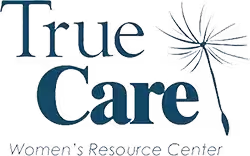Rape is a real problem affecting both women and men around the world. Some statistics report that that up to 1 in 5 women and 1 in 71 men in the US have been sexually assaulted. It is hard to know the actual numbers because many people do not make a criminal report after being raped. According to Rainn.org (Rape, Abuse & Incest National Network), only 310 out of every 1,000 sexual assaults are reported. The victims are often shocked, feel dirty, afraid, confused, mortified and don’t want anyone to know what happened. Sometimes it takes years before they open up and tell someone what happened to them.
Emotional and Physical Consequences
Rapecrisis.org lists some of the feelings and after effects of rape trauma. PTSD has been documented as a common response to sexual assault, and men and women often benefit from a licensed counselor who can walk through recovery with them. Physical trauma such as abrasions, bruises, anal and vaginal tears and/or other injuries from the assault may need to be treated by a physician right away. STDs and pregnancy can also result from rape. Five percent of rape cases in 1996 resulted in pregnancy.
Although a victim’s first response may be to go home to shower and wash away any and all trace of their attacker because they feel dirty, experts say this is not a good idea because doing so also washes away any physical evidence needed to obtain a conviction of the rapist. It is highly recommended that the victim seek medical help right away and that any physical evidence be collected. An adult assault survivor doesn’t have to make a criminal complaint even if they go to the hospital and has evidence collected. Once evidence is collected and injuries are documented the victim will have some time to decide whether or not to file a criminal complaint.
Pregnancy
What about pregnancy? Should a woman who gets pregnant from rape get an abortion? Should she have the baby? This is such a hard topic and politically loaded question. At True Care Women’s Resource Center, we have helped to confirm the pregnancies of women who became pregnant from rape. Some have chosen to abort and some have carried their babies and delivered. One hurting woman asked her nurse, “Is it wrong for me to hate something so innocent so much?” She had so much hurt and pain from what happened to her; the knowledge of where that baby came from was too much for her to cope with at that time. We provided her important resources including counseling, a pregnancy confirmation ultrasound, limited STD testing, and caring, nonjudgmental staff and volunteers to whom she could pour out her concerns. She chose to have an abortion. Another woman thought about her pregnancy options and knew that she could not choose to have an abortion because she saw her baby’s heart beating on the ultrasound and saw that this was a life within her. She made an adoption plan with a family member who couldn’t have children. Others choose to parent their little ones and are glad they did in spite of the horrific trauma that led up to their pregnancies. Only 0.3% of abortions cases are rape related. Often women who want to parent have pressure to abort or make an adoption plan. It can take deep courage and determination to carry a baby to term after rape.
Here are some stories of women who had their babies after rape. 11 y/o, date rape, hurtful comments about child conceived by rape.
Child Custody Issues
One other issue women may not consider is custody of their child. It is common for women to have to share custody with their rapist. This is a huge concern for many women. Many states have legislation that provides some protections regarding custody issues, but often the laws still leave gaps in the protections granted and require rape convictions in court for the woman and child to be protected (Remember that many women feel so shocked and ashamed that they never seek medical assistance and no evidence is collection.). Currently seven states still don’t have any laws to protect rape victims from custody challenges of their joint child. Regarding Wyoming: “No laws currently exist to protect a rape victim who has a child due to the assault from having to face a challenge from her attacker over custody rights.”
Have you Experienced Sexual Assault?
If you have experienced sexual assault and haven’t told anyone, please seek assistance. The Self Help Center in Casper has advocates around the clock who can meet with you to help you decide what next steps you need to take. They have many wonderful resources and can help you understand your rights as a victim. Additionally, both the Natrona County Sheriff’s Office and the Casper Police Department have victim services advocates specifically to assist people affected by violent crime, including domestic and sexual assaults. If you are over 18, you don’t have to press charges, but you can receive the care and compassion you deserve. Also, many nurses at Wyoming Medical Center are especially trained to help those who have been sexually assaulted. These SANE nurses are equipped to work with law enforcement if needed by collecting evidence in a sexual assault case, but their primary job and focus is to help the patient in their care that has been through such a trauma.
If you or someone you know has been sexually assaulted, please contact one of these agencies, or this toll-free national hotline number: 800-656-4673. You can also contact True Care for a free pregnancy test: 307-215-9684.
